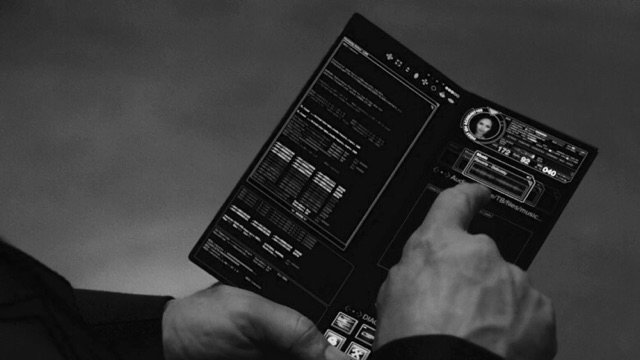Some people are born with “the eye”, “the taste”, or “the ear”. Their bodies are more accustomed to a certain sense. It’s what made Andy Warhol a famed artist, Gordon Ramsey a premier chef, and Elton John a legendary singer-pianist. But that doesn’t mean the rest of us don’t have the option to upgrade our senses. We just have to do it the old-fashioned way…with transhuman technology.
Transhuman Technology
If you aren’t familiar, transhuman technology is new advancements that can be used to liberate the human body from its natural limitations. Not cars or phones, which make us “quicker” and “smarter”. Rather, transhuman technology is incorporated or combined with the body, as if they are one.
This is an odd concept for most people, I included. For instance, I was frightened when I saw that a company here in Wisconsin was implanting microchips in employees’ hands so they could wave a hand to enter passcodes, buy meals, etc… This is on the small scale, though.
The grand vision for most transhumanists is to develop these technologies with hopes of someday creating an immortal existence. Elon Musk is adamant on his Neuralink brain-computer interface which will merge our brains with Artificial Intelligence.
While Elon says we are just a few years away from a fully-functioning Neuralink implant, we are much farther away from culturally accepting transhuman technology.
It’s one thing to enhance our bodies through Lasik eye surgery or plastic surgery. But to literally merge our bodies with technology is not easy to cope with. Taking control of our own evolution is a mentally strenuous topic.
Nonetheless, there are many sensory-enhancing technologies out there. By no means am I saying this is the future we need. However, it’s still cool to imagine what it’d be like to upgrade our senses to the sight of an eagle, the smell of a dog, or the hearing of a bat.
Eagle Eyes: Bionic Lenses
Sight is by far the most used human sense. Most of our decisions are based on what we see. In being the most used sense, it’s also extremely likely to fail us on a regular basis.
Can’t see the name of the street sign until it’s too late and you pass your turn. Stare at something too long and your tired eyes will give you a headache.
Not to mention, everyone’s eyes get worse as they age. This is because the flexibility of our eye lens deteriorates over time. Which is why some researchers believe the answer to this problem isn’t a stronger prescription. But bionic lenses.
Bionic lenses work just like our current eye lenses – changing their curvature for different focus ranges. However, they differ in that they may be able to adapt to even wider ranges, allowing us to see as much as three times better than 20/20. In other words, with bionic lenses, an object at 60 feet would have the same detail you currently see in an object at 20 feet.
More importantly, bionic lenses take 1/100th of the energy to focus. Meaning, you could stare at something for much longer without getting the eye-strain…meaning longer Netflix binge sessions.
You’d think this is a tough procedure, but it actually isn’t. Bionic lenses can be implanted via one of the most common and successful procedures in medicine – cataract surgery.
The only downside to this transhuman technology may be the $3,200 price tag per bionic lens.
Regardless, with 65% of people having less than 20/20 vision, this could be the most popular transhuman technology in the coming decades.
Nose Job: Electronic Nose
Dogs are among the best sniffers on Earth, even though recent research suggests we might be just as good if we practiced.
Either way, there’s a nose that beats ALL mammals: the electronic nose. The electronic nose differentiates itself from other noses because it can detect scents down to the chemical compound level.
For instance, there’s an electronic nose that can detect lung cancer in individuals based on the presence of volatile organic compounds in their breath. The PERES electronic nose can determine the quality of pork, beef, chicken, and fish – detecting foodborne illnesses with more precision than smelling if it is spoiled.
NASA is especially interested in the electronic nose on spacecrafts. There are upwards of fifty chemicals which circulate throughout a spacecraft to keep it hospitable for humans. However, if those chemicals begin to accumulate, they could lead to a dangerous situation. Having an electronic nose onboard means catching problems before they become catastrophes.
While the electronic nose as an external instrument is cool, I’m fascinated by the possibility to link it to our own olfactory glands.
Our sense of smell is all mental, in that we don’t recognize the forty chemicals that make up the smell of a strawberry, we just associate them all together and recognize the smell of a strawberry.
But, what if we could detect individual compounds in some way?
Imagine smelling MRSA bacteria on a water fountain as you were about to bend over for a drink. Or sensing that your favorite sushi place was mixing the raw chicken with the tuna.
Although I don’t know how scientists would link the two. I’m sure it’s on someone’s research agenda.
What’s the point?
Transhuman technology gives us the possibility of transforming our own senses into that of our favorite mammals or superheroes. But, the question persists: Will we unanimously want to upgrade our senses?
When I asked my friend Ryan, who has very far-sighted vision, he said, “Honestly, I probably wouldn’t get the bionic lenses. My farsighted vision is unique to me. It’s part of my identity. Yes, it’s a major flaw that I wake up and literally can’t read the text messages on my phone. But, when I wear my glasses I also get a lot of laughs…you know. Because of my bug eyes.”
After hearing this, it made me realize Ryan probably is one among many. Yes, productivity-centered folks will jump on this transhuman technology. But, for most of us, we get along just fine without perfect senses.
Bionic lenses may uncover a whole new visual world. The electronic nose may help us detect harmful things in the environment. And electronic taste simulators may help us overcome the taste of vegetables.
But, what good is having more acute senses if we already do a poor job paying attention to the senses we have?
Get a Sense of Our Senses
Our brains have wired themselves to block out a lot of sensory input: background noise, the smell of outside, peripherals, etc… Obviously, this is a great evolution. Without a selective sensory brain, we’d never get anything done.
However, most of us have a sensory deficiency and need to learn how to reconnect with our senses. Because this is where true beauty, daily beauty, is hidden.
Next time you are just walking around, take out your headphones and just listen. Try and see how many noises you can point out. You’ll be shocked at the number of noises you’ve been missing – some of them more beautiful than others. Notice the trees’ leaves soaking up the sun rays or the grass catching the wind.
Tomorrow when you are drinking your morning cup of coffee or juice, don’t let your brain wander to what’s on the agenda for the day. Fully commit to the smell and taste of your beverage. Feel it travel from the tip of your tongue down into your stomach.
Tune into your senses for entertainment every now and again. It’s quite pleasing.
And after you notice a new sensory detail you’ve blocked out for so long, tell it to someone else or shoot me an email. Share your senses. Thanks for reading this week’s Quick Theories…I hope it smelled good 🙂



You are an excellent writer! Thanks for another compelling article.
Exceptional article !!!
As a technical writer, I appreciate the concise method you have used
to convey a sensitive subject with a broad perspective
while still including enough very short anecodotal stories
to keep people curious in down to Earth ways.
MOST of your articles nearly always stimulate expanded curiosity.
I appreciate receiving them – especially since I have spent decades on
Research and Development on HOW TO raise internal awareness with better integration
among our biosenses with intuitive soul senses as well as analytical brain capacities
stimulated by selected “Perfect Crystal” resonances through cross-overs to brain waves.
Despite the hoopla…
Individualized implants for selected functions will Not be good for most people.
A more general FLEXIBLE approach is required to improve life quality as a whole.
IMAGINE …
“Cross-over INTEGRATION” of our HI+er POTENTIALS as ESSENTIAL
to making any new Hi Tech paradigms work sustainably.
There are better ways than implants for achieving expansion
of specific senses and talents along WITH life purpose,
which is to experience Sustainable Happiness + Prosperity + Vibrant Health
bridged to the immortal potential of our spiritual life CORE.
People must discover THE KEY (Algo+Rhythm) FORMULA first.
THE KEY FORMULA is Not an algorithm, based in 2 bit language codes
that pop from out of cubic silicon chip boxes.
The human brain and soul and THE KEY FORMULA
begin with a pi-based (spherical) math language
linked through Eternally Transcendent Numbers” in harmony with Whole Numbers
based in Metric (Base 10) codes.
This is KEY to “Cross-over Integration”
also known as “Bridging the body+brain + spirit together” to amplify powers.
Bravo to those who seek to expand the reality of spirituality
with HI+er views of Science grounded in improving human life conditions
so that more people can experience more REAL Happiness.
Your subtle insights usually offer practical wisdom
within imaginative and relatively short, yet…expandable articles !
I hope that your audience expands to 100,000 + within the next year !!!
Keep up the great work